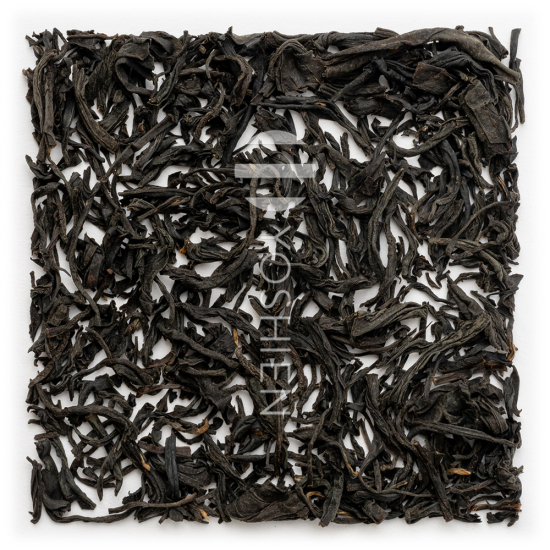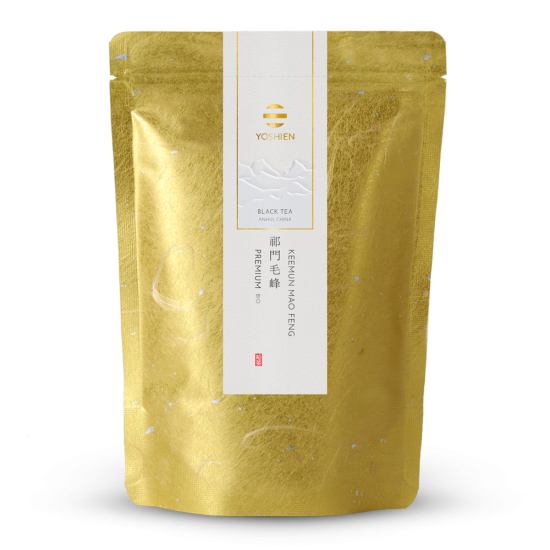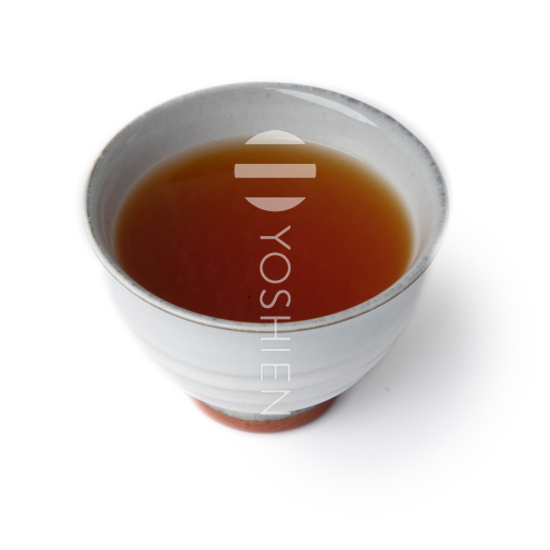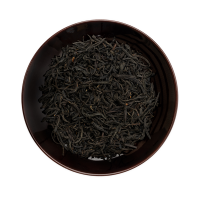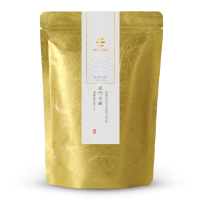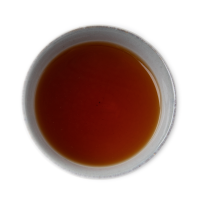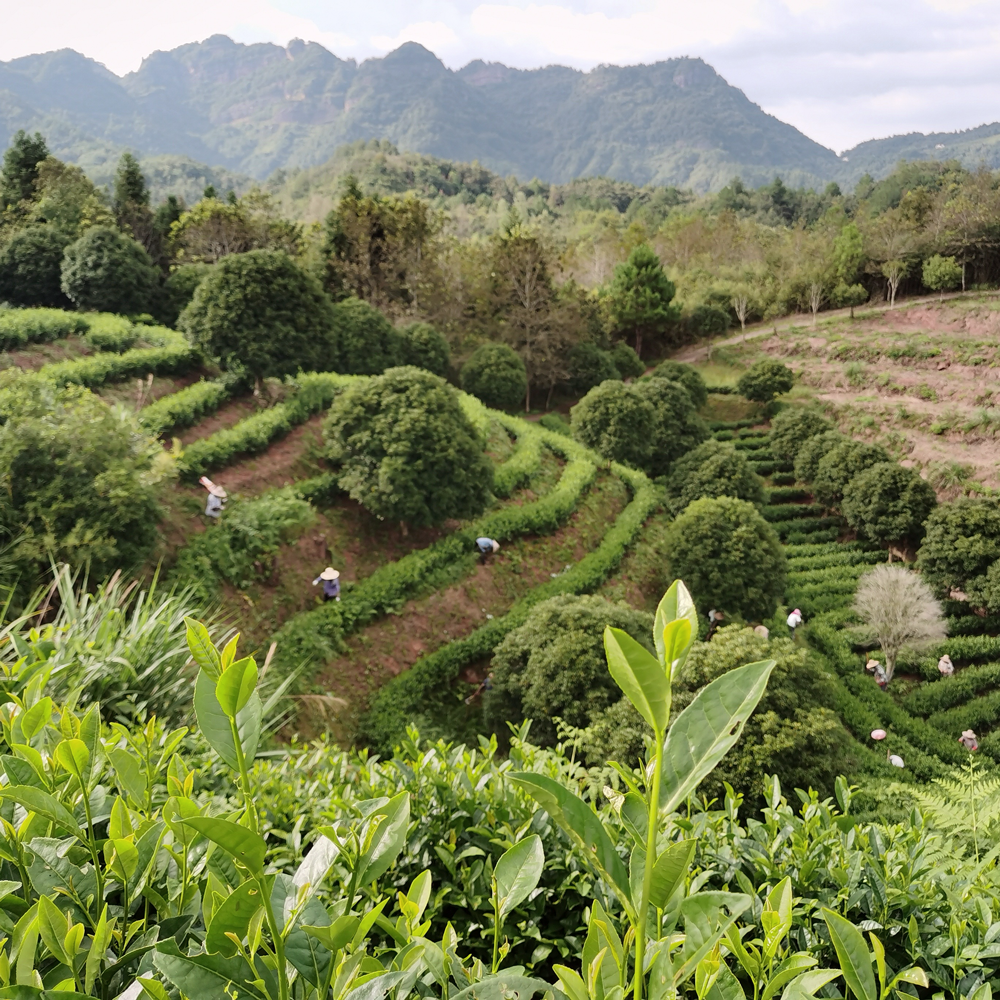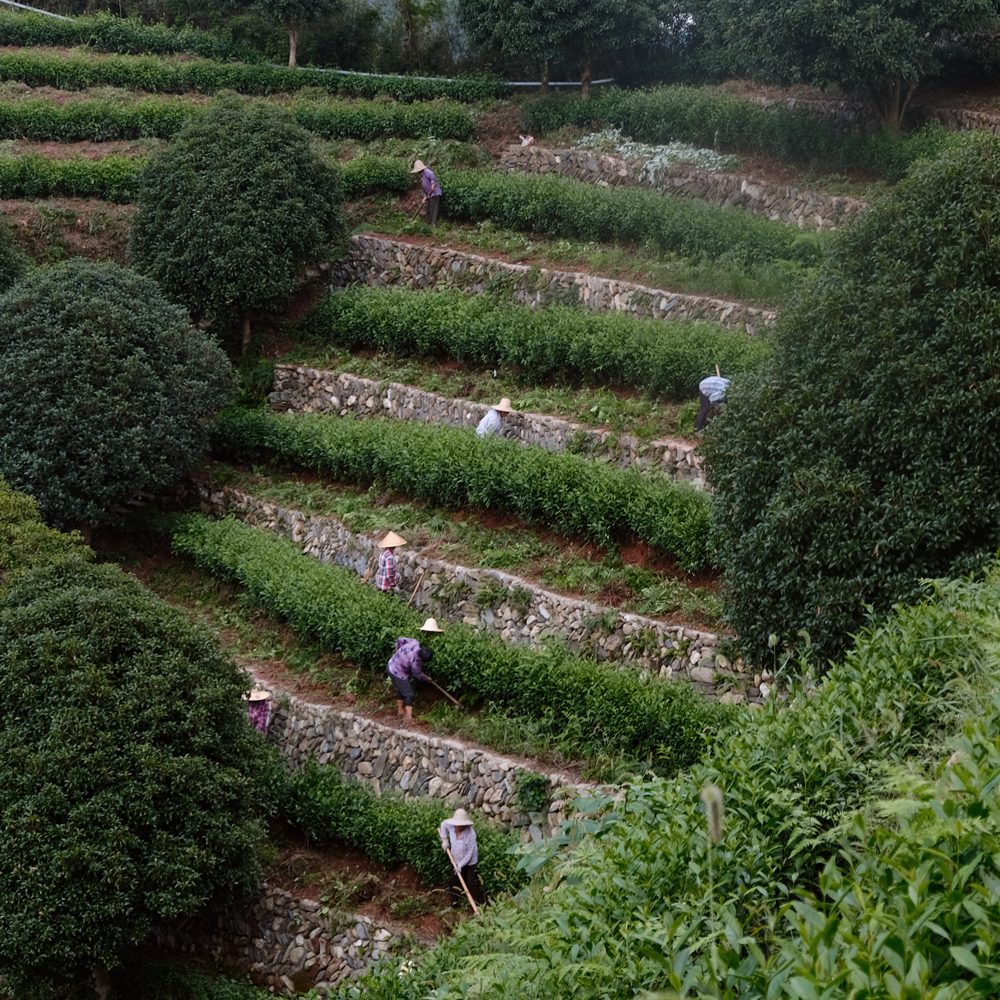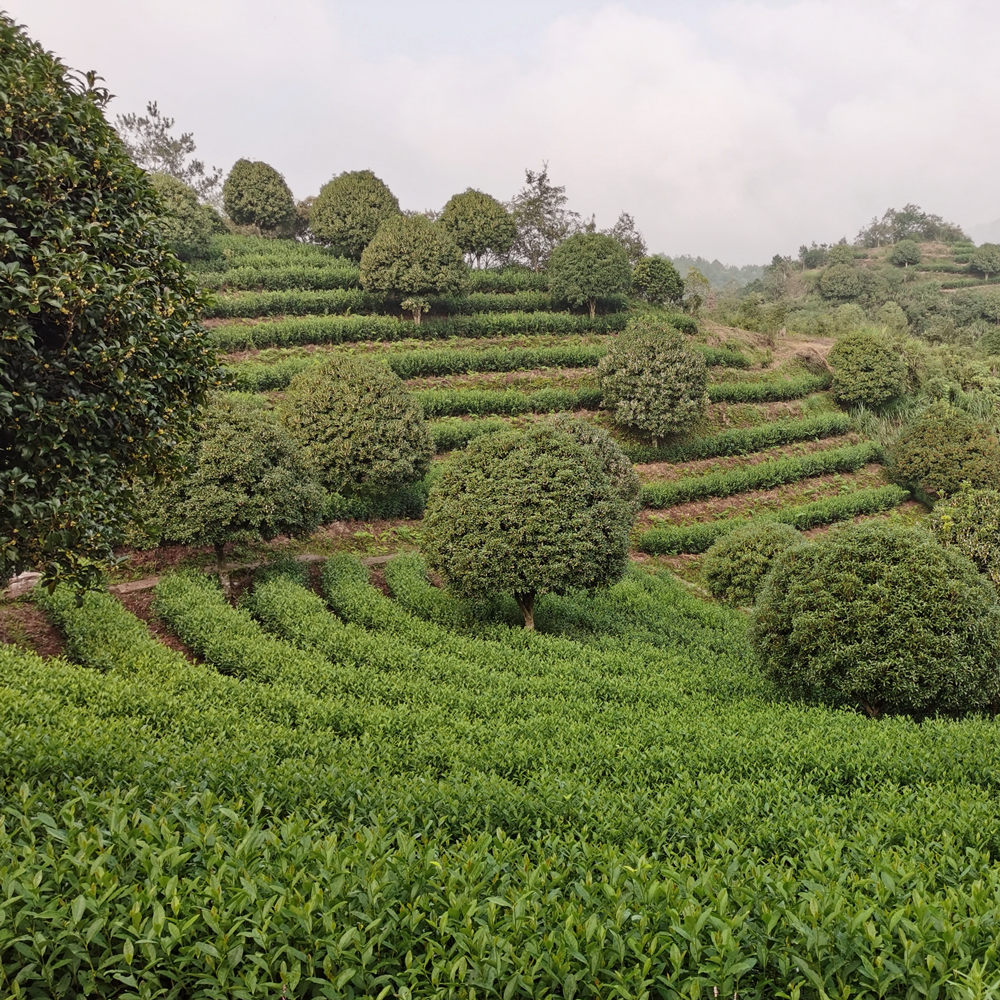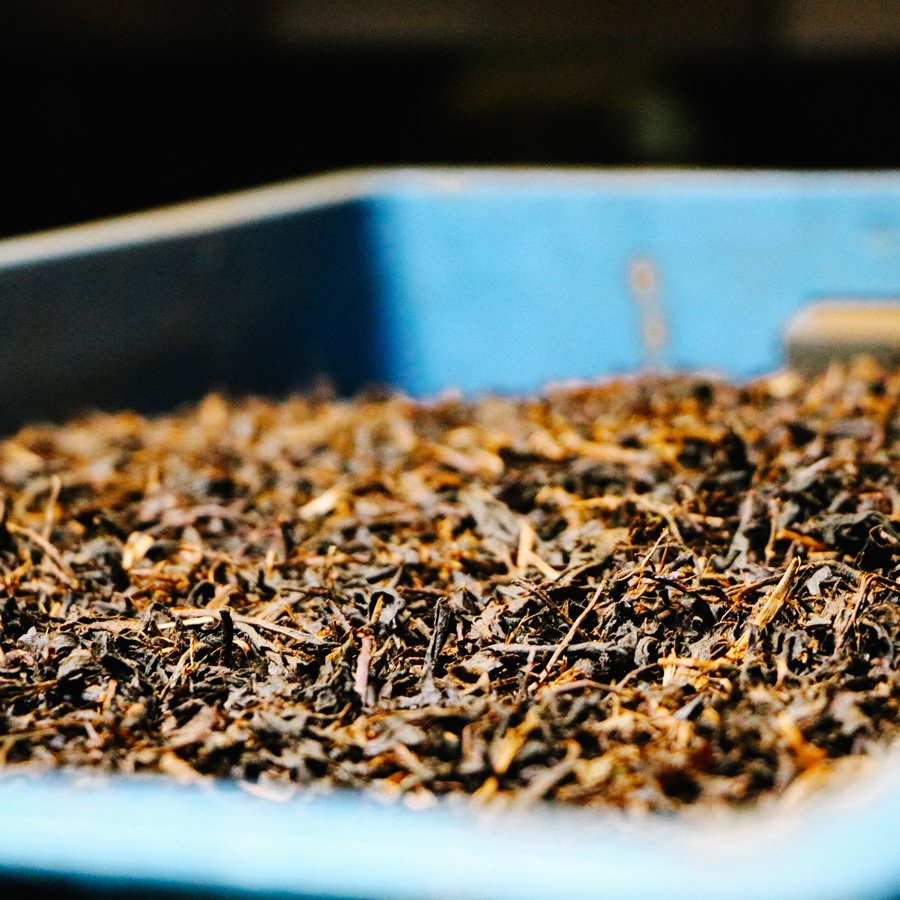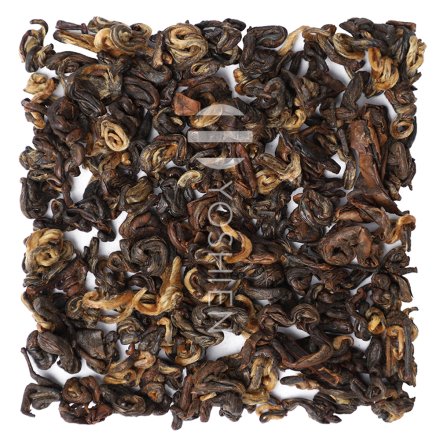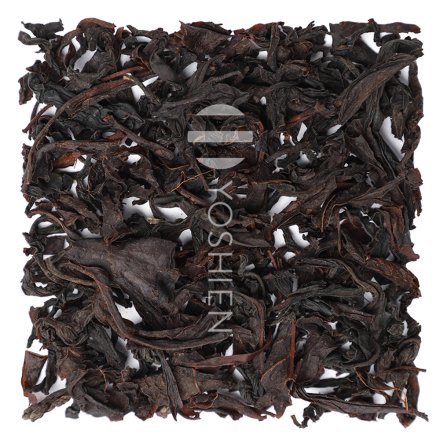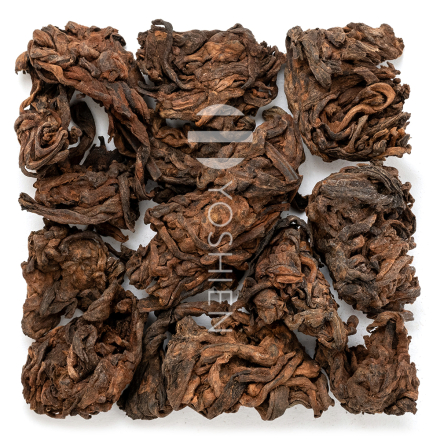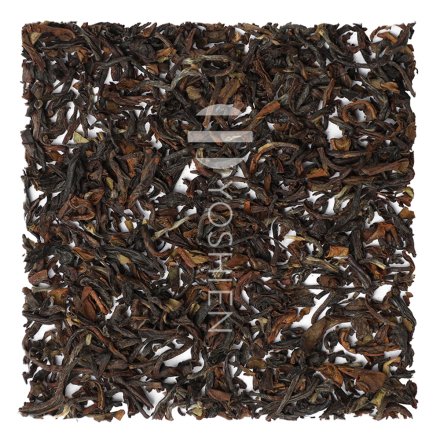Terroir
The tea fields are nestled in the stunning natural landscape of China’s Anhui province. Anhui is internationally renowned for its long-standing tradition of black tea production and its consistently high quality. The region offers ideal climatic conditions, with a good balance of rainfall and sunshine, as well as frequent mist, which promotes the development of L-theanine in the tea plants. The terrain provides excellent drainage, and the soil is rich in minerals.
The oxidation of the tea leaves takes place indoors. Initially, the leaves are simply left to rest until they soften slightly. During the actual withering process, the room temperature is strictly monitored and kept constant at around 28°C using wood-fired stoves. For this particular tea, the tea leaves are then rolled mechanically. After withering, the leaves are placed in special wooden boxes for oxidation and covered with damp cloths. They remain there for around 3 to 5 hours, depending on the desired level of oxidation. This is continuously checked by an experienced tea master who assesses them visually, by smell, and by tasting individual leaves. Finally, the tea leaves are dried in bamboo containers over an open flame at low heat, usually in two stages to prevent overheating. Traditionally, pine wood is used for this fire-drying process.



